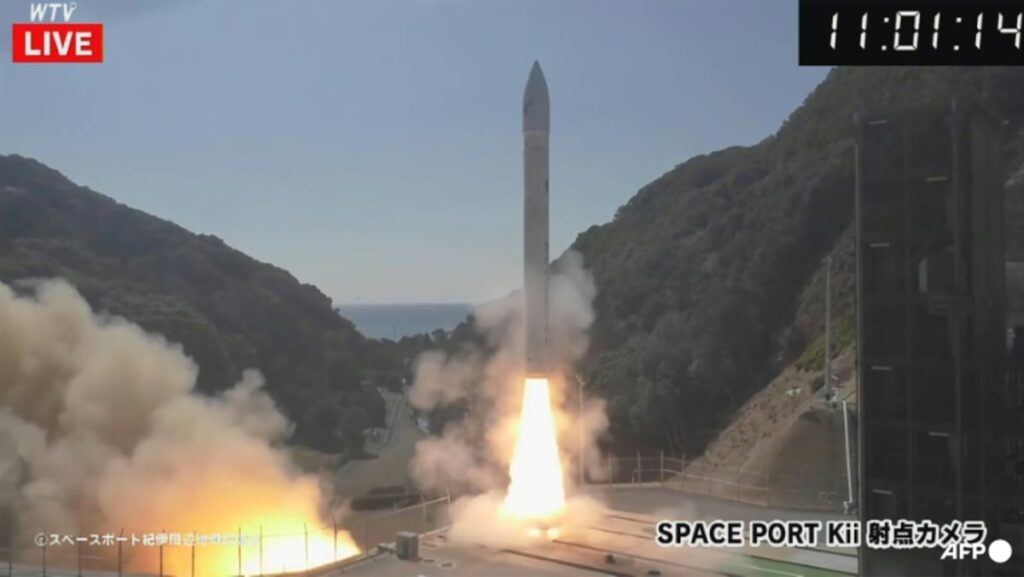“DIDN’T EVEN IMAGINE”
The mayor of Kushimoto, the town of 15,000 residents in Wakayama where the failed launch took place, voiced his surprise and disappointment.
“I didn’t even imagine an outcome like this,” Katsumasa Tashima told reporters shortly after the explosion.
But the town “will continue to support Space One, and we want to continue to offer our help so that the first rocket will have a successful launch”, he said.
Tokyo-based Space One was established in 2018 by a consortium of Japanese companies: Canon Electronics, the aerospace engineering unit of IHI, construction firm Shimizu and the state-backed Development Bank of Japan. Two of Japan’s biggest banks, Mitsubishi UFJ and Mizuho, also own minority stakes.
Shares in Canon Electronics fell as much as 13 per cent, while IHI shares were down as much as 2 per cent after Wednesday’s failed launch.
The failure marks a blow to Japan’s efforts to enter the potentially lucrative satellite-launch market.
The government wants to assess if it can quickly launch temporary, small satellites when and if its existing spy satellites malfunction.
It had been hoped Kairos would put the satellite into orbit around 51 minutes after the launch.
Last July another Japanese rocket engine exploded during a test around 50 seconds after ignition.
The solid-fuel Epsilon S was an improved version of the Epsilon rocket that had failed to launch the previous October.
Its testing site in the northern prefecture of Akita was engulfed in flames and a huge plume of grey smoke rose into the sky.
The malfunction came after Tokyo in March 2023 had seen its second attempt to launch its next-generation H3 rocket fail after liftoff.
Last month, though, Japan’s space agency toasted a successful blast-off for its new flagship rocket, the H3, after years of delays and two previous failed attempts.
The H3 launched from the Tanegashima Space Center in southwestern Japan, sparking cheers and applause at JAXA control centre.
It has been mooted as a rival to SpaceX’s Falcon 9, and could one day deliver cargo to bases on the Moon.
That followed Japan’s successful landing in January 2024 of an unmanned probe on the Moon – albeit at a wonky angle – making it just the fifth country to achieve a “soft landing” on the lunar surface.
Read the full article here










